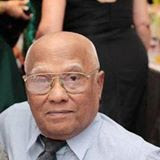Sri Lanka kept Coronavirus in Check by Harold Gunatillake

Transcript:
How did Sri Lanka manage to contain COVID 19 infections, preventing the new coronavirus from epidemic proportions compared to more advanced countries.
We are an island surrounded by salt water, unlike big countries having neighboring countries attached by borders.
How did they do it?
Early reaction by the government and the health advisers was the key
A 22 member National Action committee was set up by the ministry to prevent the spread of coronavirus in Sri Lanka.
On the 27 January, the first confirmed case of the virus was reported in Sri Lanka, and that was a Chinese woman from Hubei Province of China. She was promptly admitted to the National Institute of Infection Diseases. She was fully recovered and discharged from hospital on 19th February.
On 3 March 2020, the first reported case involving a Sri Lankan origin outside Sri Lanka was reported in Italy. As of 23 March 2020, 45 quarantine centres were built in the country by the Sri Lanka Army as a preventive measure to tackle the coronavirus pandemic. Nearly 3500 people have been under quarantine in 45 quarantine centres which also include 31 foreigners from 14 countries.
On 24 March there was 102 diagnosed cases of COVID 19.
On the 26 Match 106 cases were identified.
These findings indicate that Sri Lanka has well controlled the spread.
Further, by the 25th March Sri Lankan authorities tracted down over 14000 people who had contacted the identified patients and ordered self quarantine for them.
Sri Lankan thinking is smart. Prior to 27 January, the Ministry of Health instructed the Quarantine Unit at the main Katunayaka Airport to screen passengers for symptoms.
The Department of Immigration and Emigration also informed all construction sites with Chinese resident visa holders to restrict their Chinese employees to their respective workplaces and lodgings.
After the first case was identified in January, the health authorities insisted that people wore a face mask
Prompt action was taken by the immigration authorities that passengers coming from Italy, Iran, or South Korea to be quarantined for two weeks
On 10 March, 186 people (164 Sri Lankan nationals, 20 Italian nationals and 2 South Korean nationals) were placed under quarantine in Batticaloa.[21] On 10 March 2020, 2 Sri Lankan origins living in United Arab Emirates reported with coronavirus cases were identified.
On 10 March, the first Sri Lankan local national tested positive for COVID-19A 52-year-old tour guide working with a group of Italians had tested positive. He is under treatment in Infectious Disease Hospital, Angoda.[23] Twenty nine patients were under observation in government hospitals, including eight foreigners.[24] Following the new developments, the country suspended on arrival visa for tourists on 11 March
Sri Lankan government has requested the general public to practice proper hygiene methods and self quarantine methods to safeguard from the disease.[48]
On 14 March, the Sri Lankan government declared 16 March 2020, as a national public holiday to contain the coronavirus spreading in the country
On 16 March, the Government Medical Officers Association (GMOA) requested President Gotabaya Rajapaksa to extend the Public holiday to 1 week, and close all ports of entry to the country.[54] The government extended the public holidays to three days from 17 March to 19 March due to increase in new cases except for health, banking, food supply and transportation.
On 17 March 2020, Sri Lankan President Gotabaya Rajapaksa stated that Sri Lanka has not reached full-time quarantine level and criticised the comparisons regarding the country’s situation with lockdown in Italy which was urged by Sri Lankan general public in the social media.[57] President also ordered the banking sector to not overburden the coronavirus hit business sector which are unable to repay the loan and ordered the banking sector to further extend the payback period to another six months.[58]
Minister of Health Pavithra Wanniarachchi revealed that around 24 hospitals are available ready to tackle the coronavirus emergency.[59]
Team work, prompt organization, declaring intermittent curfews, public holidays, and most of people abiding by the rules have curtailed the spread of the disease in Sri Lanka.
Do coconut & spicy food have a link to curtail COVID19?
Sri Lankans love rice and curry, and that is there staple food.
Coconut is an ingredient used as scrapings, milk, oil or the water in curry cuisines.
Coconut has mainly medium chain fatty acids and is a saturated oil. Lauric Acid forms 50% of the oil which has antimicrobial properties, destroying bacteria, viruses and fungi.
Spices used in curries are immune boosters, and have medicinal uses.
Turmeric, coriander, cumin seeds, mustard seeds, garlic and ginger have therapeutic values and in boosting your immune process.
Molagathanni, Rasam including chicken soup too boost your immune system.
So, these dietary factors may be partly responsible for curtailing the spread of the corona virus.
Hope you liked this video and remember to be far apart with your loved ones and friends though the hearts are kept close.
Good bye for now.








No Comments